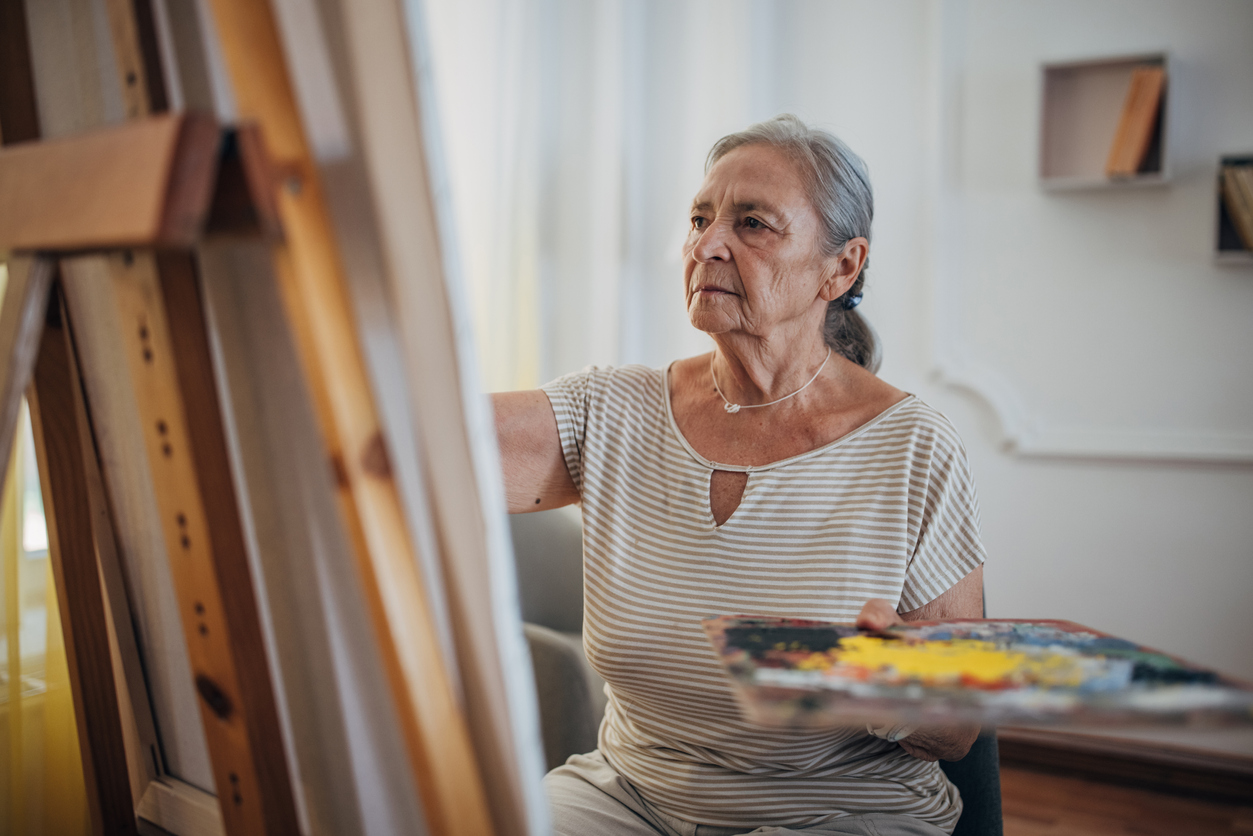Feb 02, 2023
Your own home is a very special place no matter how old you are. Whether it’s an apartment, condo or house, your home is a safe place where you can take your shoes off, relax and be yourself. Home is filled with familiar furnishings and memories – a comfy, cozy chair, your grandmother’s antique dresser, and family photo albums. You know just where the bathroom is and can almost find it in your sleep!
For someone with Alzheimer’s or other memory disorder, home may not always be the safest or most convenient place to live. As a caregiver you can help make modifications that will make it possible for her to live safely in familiar surroundings.
Begin making your loved one’s home “Alzheimer’s Friendly” by conducting a “home checkup.” Take a tour of the house and make a list of any repairs or renovations that will improve its comfort and make it safe and secure for a person with a failing memory. Pay special attention to these potentially dangerous areas of the house.
Stairs
Going up or down stairs can be challenging for people with memory loss – especially if they also have poor vision, difficulty walking or balance problems. To prevent falls:
- Install handrails on both sides of the stairway.
- Make sure stairs are well-lit with switches at the top and bottom.
- Repair or remove torn carpeting.
- Replace worn stair treads.
- Keep stairs free of clutter.
Bathroom
Bathrooms can be especially dangerous for older adults with memory loss. The bathroom is used frequently so it needs to be as safe and convenient as possible. Suggestions for improving bathroom safety:
- Install grab bars in the bathtub, shower and next to the toilet.
- Install faucets with easy-to-grasp handles that are comfortable for arthritic fingers.
- Keep the hot water heater temperature at 120 degrees or lower.
- Make sure lighting is good; install a nightlight.
- Use rubber-backed rugs or bathmats to prevent falls.
- If you parent has trouble finding the bathroom, tape a picture of a toilet to the bathroom door to remind him where it is.
Living Room
Living rooms present a variety of obstacles that can cause falls. Safety tips for living rooms include:
- Put away throw rugs – they’re easy to trip over.
- Avoid using extension cords for lamps, the TV or other appliances.
- Don’t put rugs or furniture on top of electrical cords
- Use the correct wattage light bulbs for lamps and light fixtures.
- Don’t eat in the living room to prevent insects and other household pests.
- Replace or remove worn carpeting.
Kitchen
Even if your loved one no longer cooks he or she may enjoy spending time in the kitchen watching you prepare dinner. If he or she wants to help prepare meals give them simple, safe tasks like beating eggs, setting the table or folding napkins.
To avoid injuries or fires:
- Lock up knives, scissors and other sharp objects, matches and lighters.
- Remove knobs from the stove.
- Remove rugs to prevent falls.
- Put childproof plugs in electrical outlets.
Strategies for Safe Wandering
Sixty percent of individuals with Alzheimer’s disease wander away or get lost at some time during their illness. This can be a frightening and dangerous experience for the family and their older relative. The Alzheimer’s Association suggests ways families can manage wandering behaviors and ensure their relatives’ safety:
- Take frequent walks with your relative to reduce anxiety and restlessness. Exercise during the day will help your loved one sleep better at night.
- Involve your parent in household chores like sorting laundry, setting the table or pulling weeds to keep him active and occupied.
- Create indoor and outdoor wandering “trails” in a fenced-in backyard or around the house.
- Hide doors with curtains, paint or wallpaper that matches the wall. Install sliding bolt locks on outside or basement doors that are high enough so your parent can’t reach them.
- Explain to neighbors that your relative has a memory problem. Ask them to let you know right away if they see him outside alone.
- Some wanderers also try to drive. Hide the car keys where your parent can’t find them or disable the ignition so the car won’t start.
Sign UP for "Safe Return"
The Alzheimer’s Association Safe Return program is a 24-hour nationwide emergency response service for people with dementia who wander or have a medical emergency. If you enroll your loved one in the program, they will receive a MedicAlert ID bracelet or pendant. If they wander or become lost, you can call the emergency response line to report it, activating a community support network to reunite the person with their loved ones.
Home is Best
Many families are determined to care for a parent with Alzheimer’s at home for as long as possible. With an understanding of how the disease affects their own parent’s behaviors they can make modifications to the house that will ensure his or her safety and well-being and reduce their fears that a parent could become lost or seriously injured.



